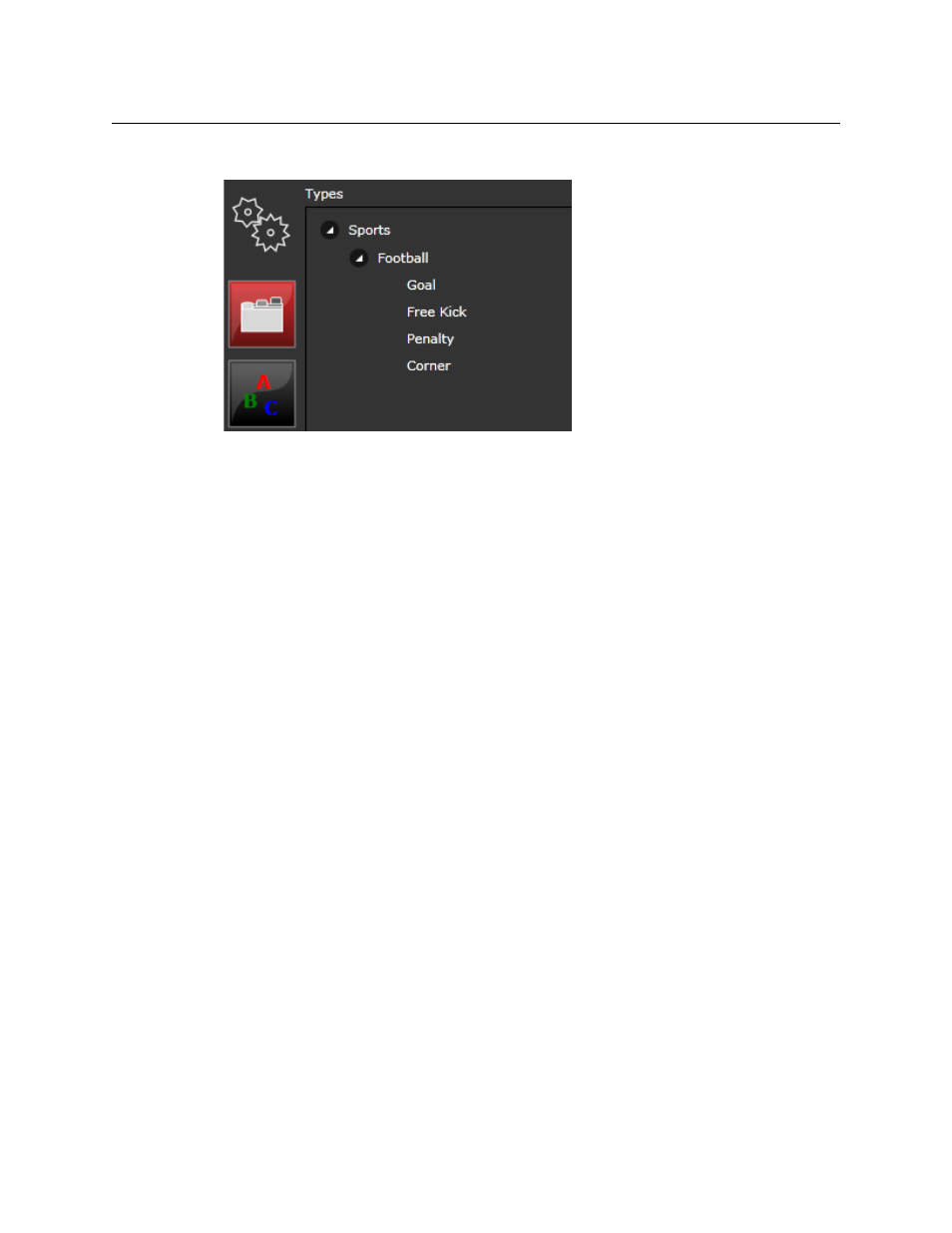Schemas – Grass Valley iTX SmartClient v.2.6 System Administrator Guide User Manual
Page 14

10
Configuring Business Metadata
Schemas
In SmartClient this hierarchy would be represented like so:
Schemas
A metadata schema describes the structure of an instance of business metadata. A schema
defines a collection of fields, each of which represents an individual item of data. A field has
a name and a data type (i.e. a field also has other properties, which define rules for data
validation, for rendering on the UI and for specifying a data source for another field where
the set of valid values for the field is defined).
A field can be marked as mandatory or options. A field can also be configured to allow
alternative values (See
on page 14). The same schema can be referenced by
multiple types, but a type can only reference a single schema.
For example, ‘News’ can be a business metadata type. This type requires a schema to
describe its content. A schema can be thought of as a table containing the fields. These
fields contain labels to describe the records each field can contain.
News schema example fields:
• Story
• Date Shot
• Location
• Reporter
• Copyright
A schema can have extra fields added, and the fields can be re-ordered without data loss.
Although a single schema can have a great many fields, it is recommended that metadata is
organized into separate types with separate schemas.
